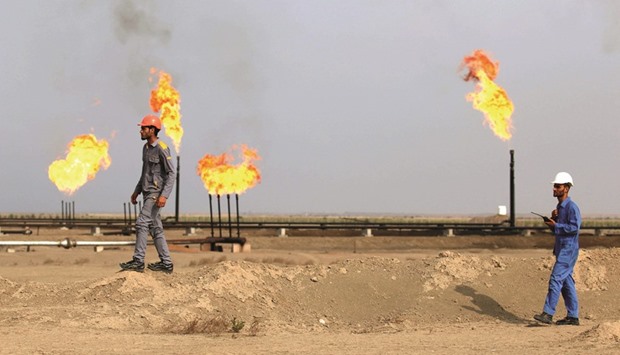Iraq has given fellow Opec members the level of crude production at which it would be prepared to freeze output, according to the top official at the state oil marketing company.
The second-biggest producer in the Organisation of Petroleum Exporting Countries could support a freeze “for a certain period,” Falah al-Amri, the director general of Iraq’s Oil Marketing Co, known as SOMO, said in an interview in Singapore on September 8. He didn’t give any further details about the level at which the country is prepared to hold its production.
Speculation that the world’s biggest oil suppliers will agree to coordinated action aimed at controlling output when they meet in Algiers this month has whipsawed global prices. Saudi Arabia and Russia, the world’s biggest producers, have pledged to cooperate to stabilise global markets, while failing to announce any specific measures. If oil prices rise because of a freeze, that would make up for suspending plans to raise output, according to al-Amri.
“We gave them a number at which we could freeze,” he said. “Output plans and a freeze are not contradictory. If a freeze means higher prices, then that compensates for not increasing production.”
The nation’s oil production will continue to grow, rising by 100,000 bpd to 150,000 bpd annually in the near-term, al-Amri said earlier at a conference in the city. The country plans to pump 6mn bpd by 2020. It currently produces about 4.48mn barrels daily, according to Bloomberg estimates.
“Iraq does not want to flood the market with oil; others might, but we don’t,” he said. “We are not in a hurry. We just want to increase our production quietly.”
Crude has gained about 10% since Opec said in August that it will hold talks in Algiers.
Separately, an official from Iran’s national oil company said it will be too early for the country to discuss freezing crude output in Algiers. Iran will be ready to decide on capping production once output reaches the level it was before international sanctions were imposed on the country, Mohsen Ghamsari, director for international affairs at state-run National Iranian Oil Co, said in an interview in Singapore.
That’s “slightly” above 4mn bpd, which may be achieved by the end of 2016 or early next year, he said. The nation is currently pumping about 3.8mn barrels daily.

Iraqi labourers work at an oil refinery in the southern town Nasiriyah. The second-biggest producer in the Organisation of Petroleum Exporting Countries could support a freeze u201cfor a certain period,u201d Falah al-Amri, the director general of Iraq’s Oil Marketing Co, known as SOMO, said in an interview in Singapore.
